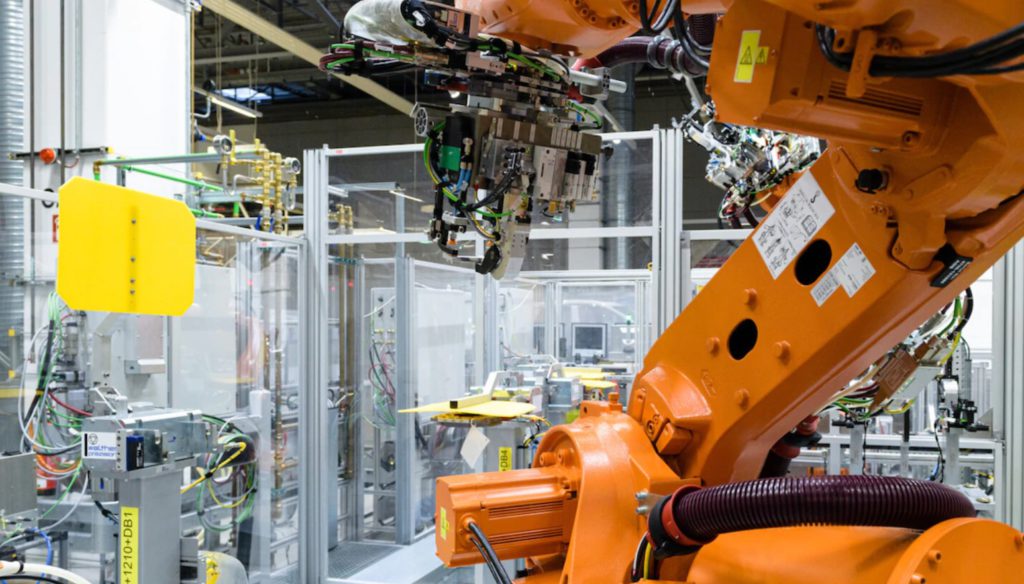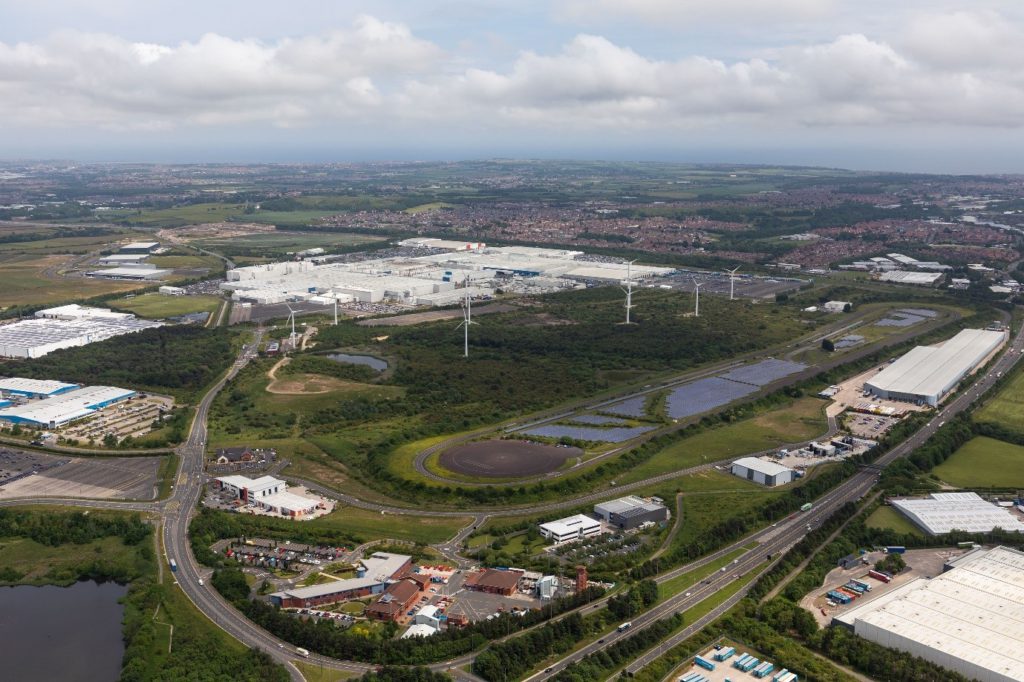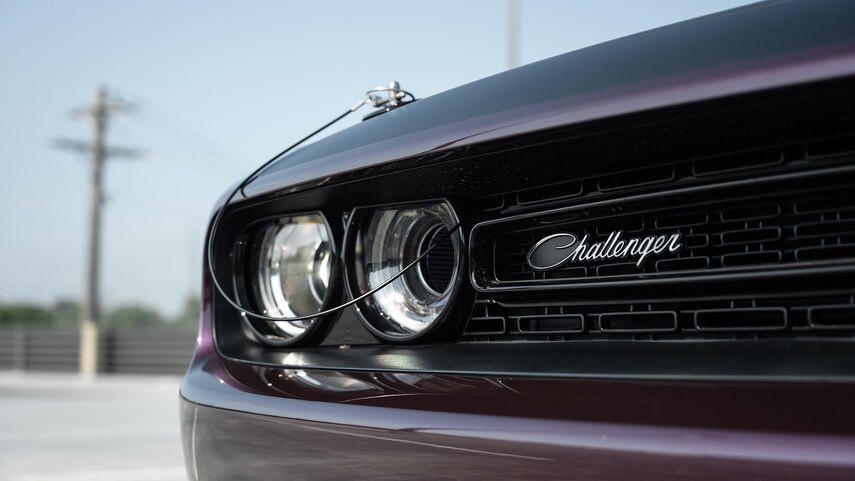This week’s automotive headlines – 4 December 2021
04 December 2021

Autovista24 analyses some of the automotive industry’s main headlines from the past seven days. This week, Porsche trialling 5G, Spain to require charging points at fuel stations, Dodge goes electric, and more…
Porsche trialling 5G at German site

Porsche has teamed up with Ericsson to trial the first deployment of a private 5G network as the car manufacturer explores the future of smart factories. The network will be piloted in the technology cell of Porsche’s Macan body shop in Leipzig, Germany, enabling the control of robotics in real-time without cables. The use of 5G should yield faster production times, reduced costs, and increased quality. It also promises fast response times between equipment in the factory system. One of the key characteristics of 5G lies in its ability to transmit massive amounts of data between other on-site machines, production workers, and vehicles through the secure transmission of signals in real time. ‘Porsche production is undergoing a comprehensive digital transformation. In the process, we are guided by our vision: smart, lean and green. 5G technology is one of the key elements laying the groundwork for our smart factory,’ said Albrecht Reimold, member of the executive board for production and logistics at Porsche.
Spanish fuel stations must build infrastructure

Spain’s Ministry for the Ecological Transition and Demographic Challenge (MITECO) has unveiled a proposal for fuel stations in the country to install mandatory electrically-chargeable vehicle (EV) infrastructure. Under the proposals, service stations with sales of more than 10 million litres of petrol and diesel in 2019 must have at least one 150kW charging point within 21 months of any law coming into force. More than 200 locations are included in this group. In addition, forecourts with sales of more than five million litres of fuel will have 27 months to install a point greater than 50kW. Should it gain public approval, the law will come into force in February 2023. The proposed order includes three exceptions: facilities that already have a recharging point with the same characteristics as the one they must install; facilities that cannot meet the technical conditions or safety requirements; and facilities in which it is not feasible to run the electrical connection necessary for the recharging point.
German government pours €17 million into battery recycling projects
Germany’s Federal Ministry of Education and Research is funding three new collaborative battery recycling projects, pouring €17 million into these programmes until 2024. The projects are intended to focus on current challenges in battery recycling, including the processing of raw materials and the digitalisation of recycling processes. A research focus will also lie on the digital detection of different battery types, as well as data acquisition with the aim of enabling clean and high-quality material separation. With the transition to electromobility, questions surrounding the availability of raw materials have come to the fore, with the German government intent on increasing recycling capacities in the battery sector. ‘Germany and Europe must become pioneers for the “sustainable battery” of tomorrow. We need an environmentally-friendly battery value chain from raw material to raw material,’ said Federal Research Minister Anja Karliczek. ‘The goal is climate-neutral battery production. I am very pleased about the start of the three new research projects on battery recycling, which address important research topics for a holistic understanding of the battery life cycle and will make a significant contribution to the establishment of a circular battery economy.’
Nissan gains approval for solar farm in Sunderland

Japanese carmaker Nissan has been given permission to install an additional 20MW solar farm at its Sunderland plant in the UK. The new installation will double the amount of renewable electricity generated at the site to 20% of its needs. The carmaker states it is enough to build every Leaf battery-electric vehicle (BEV) sold in Europe. Work will begin immediately, and installation alongside the plant’s existing wind and solar farms is expected to be complete by May 2022. This is the first of a potential ten additional solar farms planned under Nissan EV36Zero, announced in July, with an initial £1 billion (€1.2 billion) investment from Nissan and its partners in future electric-vehicle manufacturing, a new Envision AESC gigafactory, and Sunderland City Council’s renewable energy Microgrid.
Dodge flexes its muscle and goes electric

Famous for producing automotive icons like the Challenger and the Charger, Dodge is a purveyor of American muscle cars, synonymous with big and brutal design and powered by big, thirsty internal combustion engines (ICE). However, in a revolutionary move, the Stellantis-owned brand is going electric, with its first battery-electric muscle car set to be revealed in 2022, followed by a plug-in hybrid (PHEV) and a third significant new vehicle. As part of a two-year plan called Never Lift, Dodge’s move from ICE to BEVs is a significant cultural milestone in the American automotive landscape. Dodge will continue to build ICE-powered cars for two years to appease a split and vociferous consumer base, and the current non-electric Dodge muscle cars will cease production in 2024, heralding the dawn of the electric muscle car age.
Chinese EV maker XPeng plans European expansion
Chinese electric-vehicle maker XPeng plans to invest more in international markets this year, aiming to enter Sweden, Denmark, and the Netherlands in 2022. The company is already present in Norway, where it began shipping cars in December 2020. With more Chinese manufacturers entering the European market, XPeng is eager to push ahead with its expansion plans in the region. ‘As a company that focuses on global opportunities, we want to be balanced with our contribution of delivery — half from China, half from outside China — in the long run,’ said XPeng vice president and chairman, Brian Gu, in an exclusive interview with CNBC. Last month, Xpeng announced it had produced a total of 100,000 cars since its launch six years ago. The Guangzhou-based company is often described as one of Tesla’s main rivals. It rolled out its first commercially available vehicle, the G3 SUV, in 2018 and has since added more models to its portfolio, including its P7 sedan, which accounts for around 77% of deliveries, according to Gu. Its new electric SUV, the G9, was recently unveiled and is designed for the international and Chinese markets.